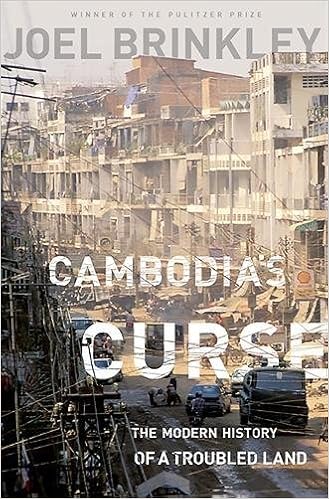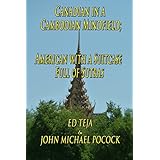Everyone has a point of view and so does every story. And the
viewpoint is intricately wound into the totality of the story--it is significantly important.
I recall a line from a creature called the Churkengoose. This was a story record I had when I was little. He said: “It depends on how
you look at things.” There are lots of truths in kids literature
and songs and this one is a biggie for writers. A story not only
depends on how you look at things, it also depends on who looks at
things. We call that the point of view--or POV, seeing as we humans seem to be in
love with acronyms.
In literature, point
of view refers to the narrative mode, the
perspective of the narrative voice; the pronoun used in narration.
That isn't all that helpful, really, so here is a little elaboration for
your consideration.
A story can be told in the first (I), second (you), or third (he or
she) point of view, for instance, although the second isn’t used
that often, except in essays such as this. That gives us who is
telling the story, sort of. It describes the perspective we
are getting.
Detective stories are often told in first person. “I walked into
the room and found her body.” That sort of thing. If you want some
variety, “He walked into the room and found her body,” can work
too, but it’s a different choice and the story flows along a different path.
It’s tricky to do well, but unlike those of us walking through real life, a storyteller can change
viewpoints, showing different parts of the story from a different perspective. And
the viewpoint doesn’t have to be that of a character. The narrator
can be someone outside the story, maybe remembering what she was told
happened at some point in time or a fly on the wall.
I’ve been thinking about these and discussing them with my
noveleering friend Bob, who often has multiple viewpoints on things,
and we decided it would be fun to categorize some approaches.
Most people have heard of the omniscient viewpoint, which simply
means the writer can tell you about anything that happens in the
world. Limiting the viewpoint to one or two characters means you can
only let readers see what those characters see. That means
omniscience is handy if the characters don’t get out much. It’s
also very useful if you are some sort of deity. After all, what’s
the point of knowing everything if you can’t show it to the reader?
Unless of course you write in mysterious ways (Deity option #4).

In an attempt to provide insight into something or other, Bob and I
have come up with a few variations for our own work. I’ve started a
novel that takes place in Cambodia. I’ve chosen to tell the tory in
the first person so it includes things the main character thinks he
sees, as well as the things he actually sees. (After all, we all see
things that aren’t there, right? I hope I’m not the only one.)
I’ve been flirting with two concepts here—“first person
hallucinogenic” and “first person omnivorous,” which is my
favorite, because the character is consumed by what he sees. The term
hallucinogenic also has the unfortunate connotation that he’s on
drugs, and he isn’t. I think it is lost in our contemporary culture
that it is possible to hallucinate without taking drugs, and that’s
my preferred course. Not only is it healthier, it’s cheap, like me.
Bob is toying with a “first person psychic” viewpoint. This POV
lets the writer present what the main character envisions is going on
in the heads of other characters. We aren’t sure how useful that
will be to storytelling, but it has a lot of interesting potential.
It might revolutionize fiction writing, or at least serve as the
premise for a lot of stupid science fiction stories.
Camus, of course, single-handedly explored the depths of the
“depressed first and third person, in fact everyone you meet
depressed” POV, just as Kerouac took on the “first person totally
lost” POV. Milan Kundera makes effective use of the “rather
cynical narrator” POV which is a modernized version of Willie
Maugham’s “don’t you wish you were me, narrator” POV. If you
are feeling really adventurous, you can follow a strategy that
Kundera and some others use—resort to a metafiction POV in which
the author makes up a character right in front of you and proceeds to
treat them as if they are a “real” character.
Armed with these useful insights, as you read various writers, see if
you can step outside the conventional POV term and identify what
theirs really is. It won’t get you anything but some extra
entertainment, but it’s interesting to think about. You might even
find out how things look from the writer’s perspective—how he or
she looks at things.





















